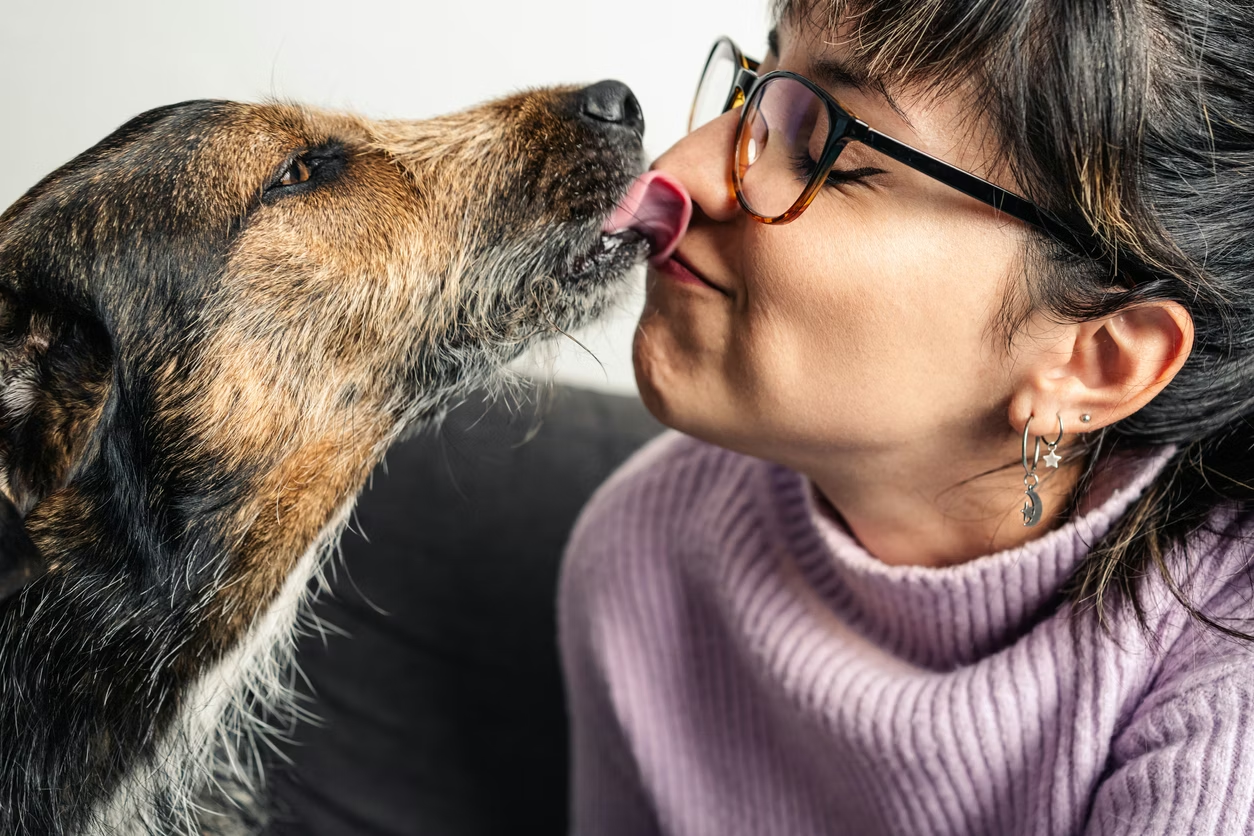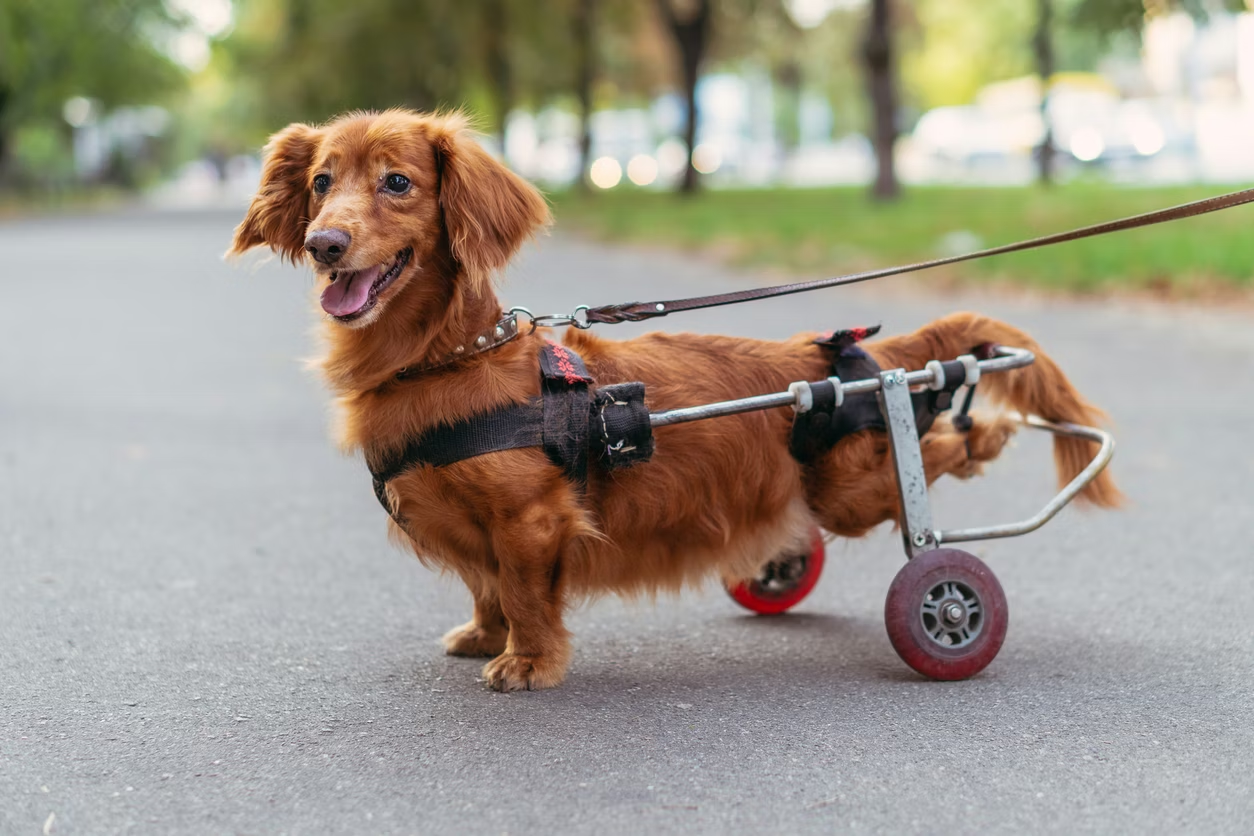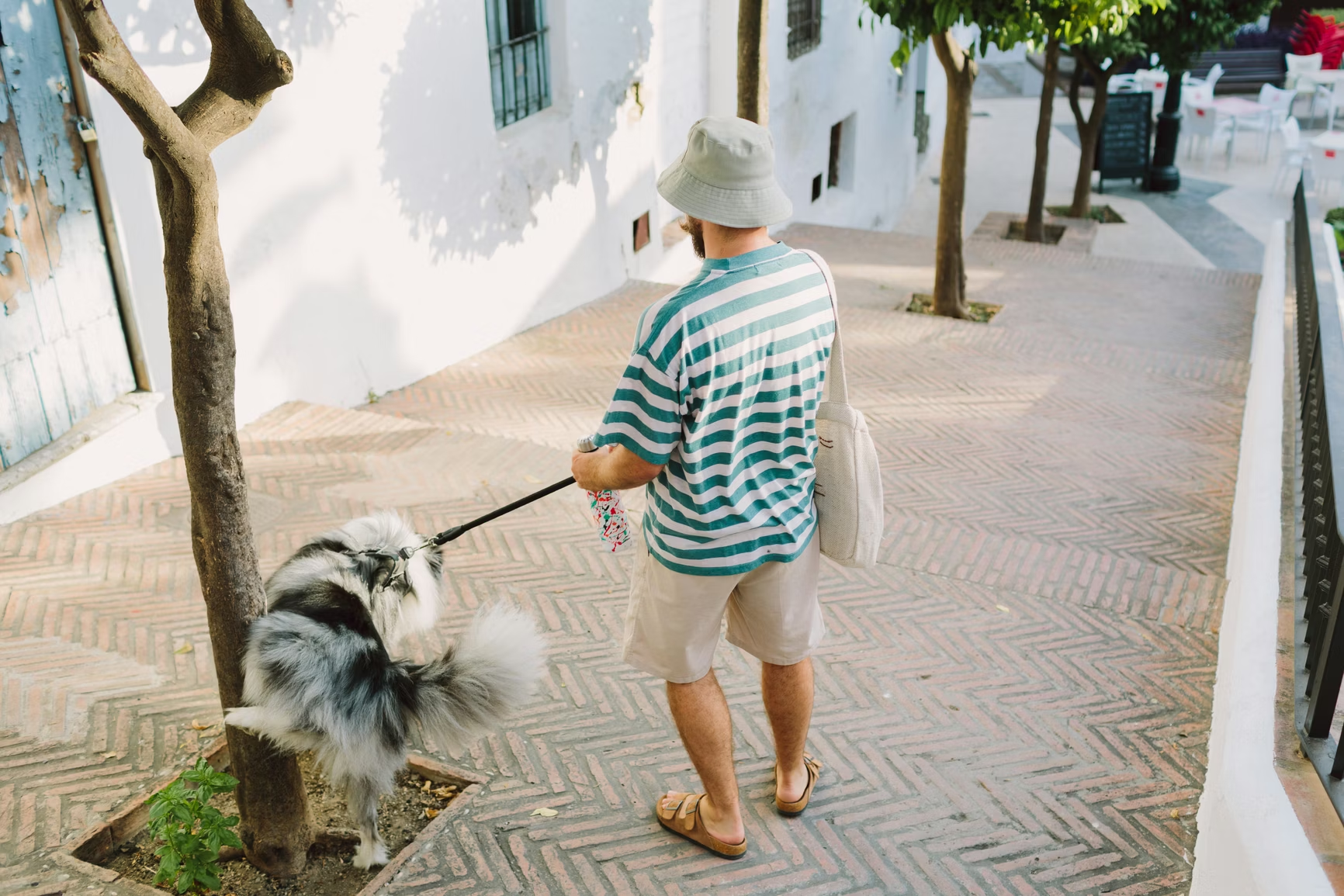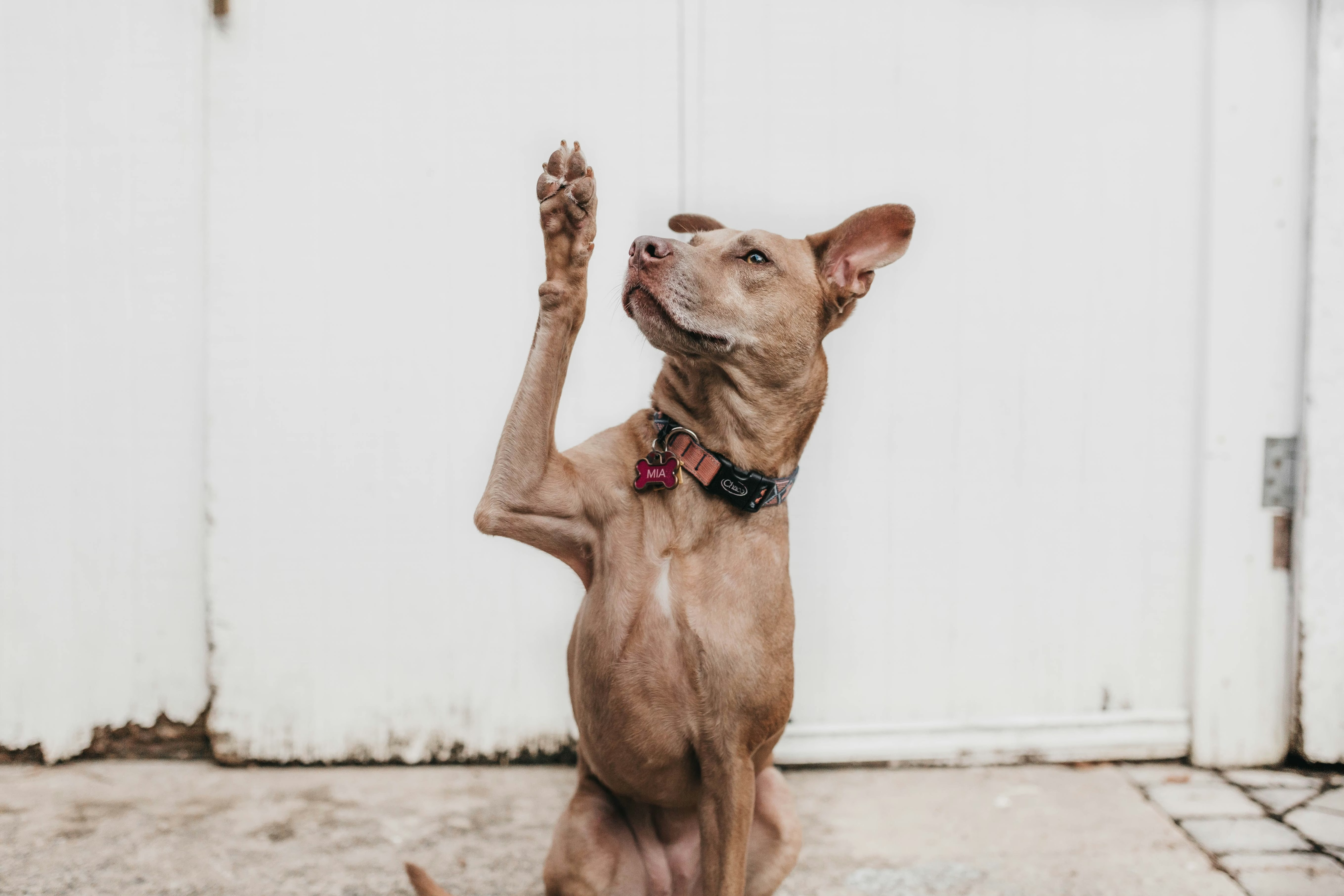Dogs communicate a lot through their body language, using their eyes, ears, mouth, tail, and body position to show others how they feel. But they also communicate through certain behaviors, including licking.
If you have a pup, you’ve undoubtedly experienced their slobbery kisses or seen them licking themselves or other animals. However, you may not know why they do this or what they’re trying to communicate. So, let’s break down some of the leading theories on why dogs lick and highlight instances when licking may warrant a trip to see the veterinarian.
Why dogs lick people
There are several reasons your dog may lick you or other humans. These include:
1. Affection: Dog licks are called kisses for a reason! There’s a good chance that your dog’s licks are a sign that they love you. Puppies get a lot of licks from their mom, so they may associate the action with safety and comfort. If your dog licks you, it may be their way of saying they feel good around you and are happy to see you.
2. Instincts: Wild dogs like wolves and coyotes sometimes use licking for a reason that may seem unappealing to humans, but is a necessary part of nurturing pups. Because young puppies are too young to hunt for themselves, they lick their mother’s mouth and face when she returns to the den. Their goal is to get their mom to regurgitate the food she’s hunted and eaten so they can eat it themselves. That doesn’t mean your dog is hoping you will vomit, but it could be a natural behavior from their ancestors that has stuck with them long after dogs became domesticated.
3. They like how you taste: Your skin has a salty taste (especially after a sweaty workout) that some dogs enjoy. Or, your hands or mouth may have a lingering smell from the last food you ate that entices dogs over to try to get a taste for themselves.
4. They are self-soothing: Licking can be comforting and help dogs relax when anxious or weary of their surroundings. In addition to licking people, they may also lick themselves or other objects (or even “the air!”).
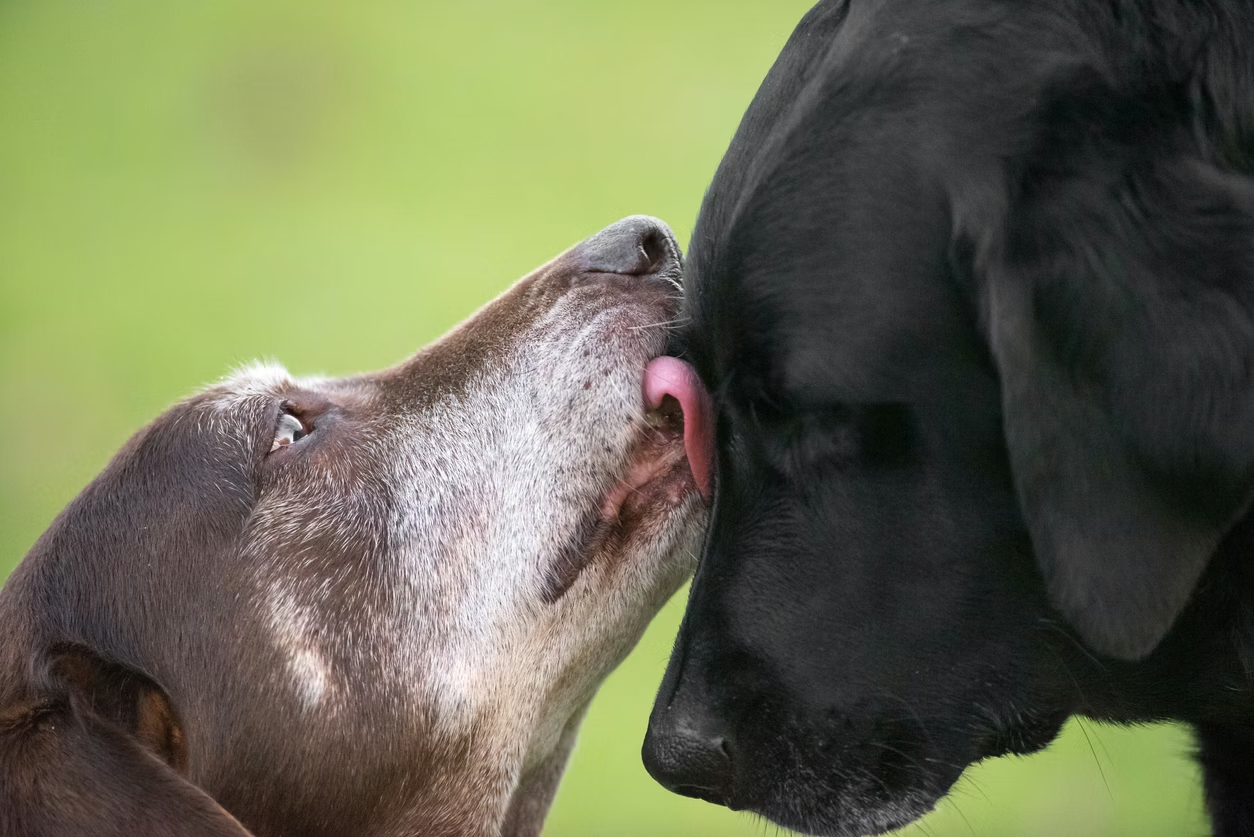
Why dogs lick other dogs or pets
Dogs are social animals, and their interactions with other dogs or pets sometimes involve licking. Here’s why:
1. Social Bonding: Licking and grooming each other is a way for dogs to bond with their fellow pack mates. It’s a way to demonstrate trust and friendship.
2. Submission: Dogs have their own social hierarchy. Often, lower-ranking dogs lick the faces of higher-ranking dogs as a sign of submission and respect.
3. Playfulness: Dogs love to play, and licking can be part of their fun-loving interactions with other dogs or pets.
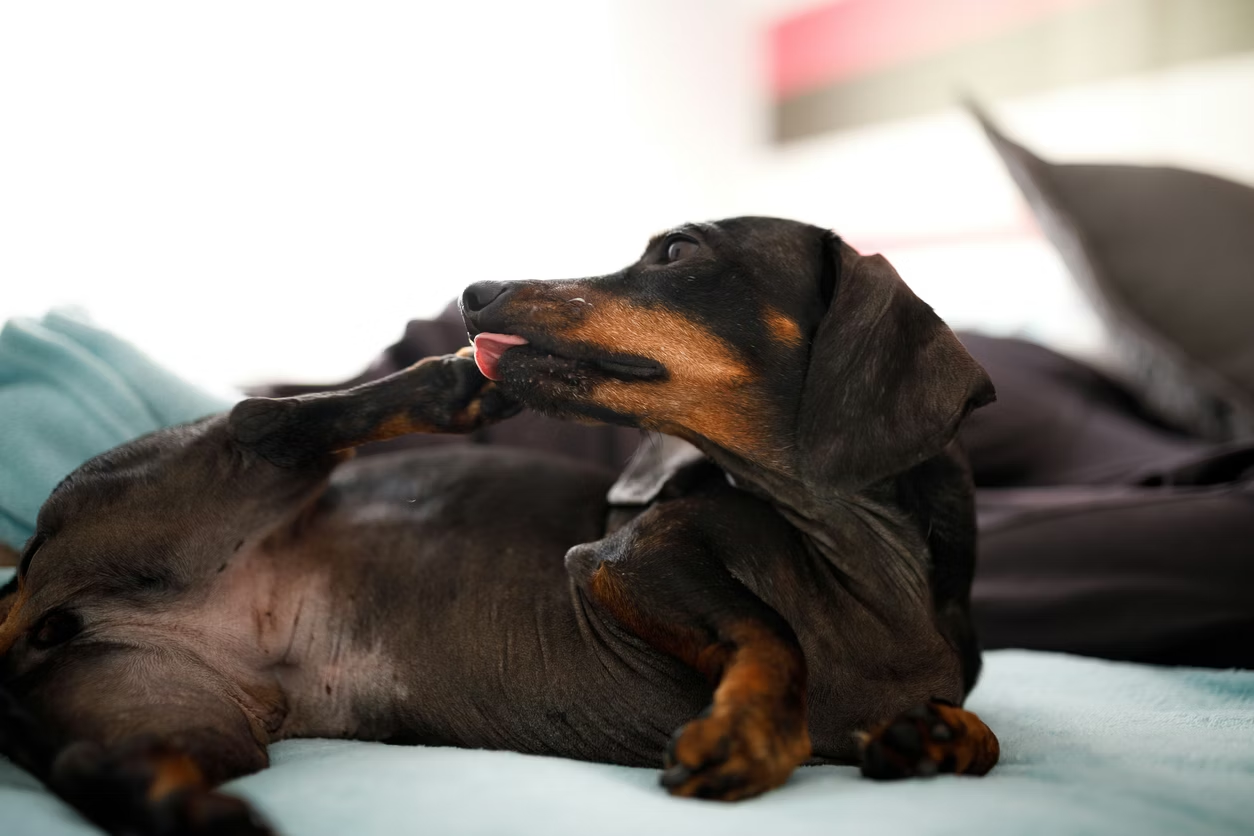
Why dogs lick themselves
There are various reasons a dog might lick itself. The most common causes for this behavior are:
1. Grooming: Though not the fastidious groomers that cats are, dogs lick themselves to remove dirt and debris from their fur and keep themselves clean.
2. Soothing: As mentioned, sometimes dogs lick to calm themselves down when nervous or unsettled. You may notice your dog licking if they are scared during a fireworks display or have separation anxiety.
3. Itchy skin or pain: Dogs may lick wounds, flea bites, dry skin, or painful, irritated areas of their body. If you notice your dog repeatedly licking a specific area, you should examine them for signs of injury, allergic reactions, or parasites. Even if you don’t find a likely cause, it’s a good idea to get them in to see a veterinarian if the licking persists, as this is not a normal behavior.
4. Boredom: Dogs need exercise and mental stimulation. If their minds and bodies aren’t kept active, they may lick to fill the time.
5. Upset tummy: Nausea can lead to drooling or an unpleasant taste in the mouth, both of which may trigger a dog to lick more. In some instances, a nauseated dog may lick the air, as well.
When licking may be a cause for concern
While licking is a common behavior, paying attention to when, why, and how often your dog licks is still important. Occasional licking is rarely a problem, but excessive licking can damage a dog’s skin or lead to painful hot spots, requiring a trip to the veterinarian for treatment.
Dogs may also lick in response to an underlying pain, such as discomfort from arthritis. In that instance, X-rays can help diagnose the issue and your vet can provide pain medications, if necessary, to keep your pup more comfortable (and happier!). So whether or not you can see visible signs of a trigger, if your dog is licking a lot, it’s best to determine the cause early and intervene before the situation worsens.
Excessive licking may also be a sign of cognitive decline, especially in older dogs. If you notice a change in the frequency of your dog’s licking, or if the licking accompanies periods of disorientation, pacing, or accidents in the house, it’s a good idea to have your pup examined by a veterinarian so they can rule out underlying causes.
And lastly, licking can be a compulsive behavior associated with stress or anxiety. If your dog is licking as a way of coping with stressful situations, working with your veterinarian or a board-certified veterinary behaviorist on a behavioral treatment plan can address the underlying cause of the licking before it manifests into physical issues like hot spots.



